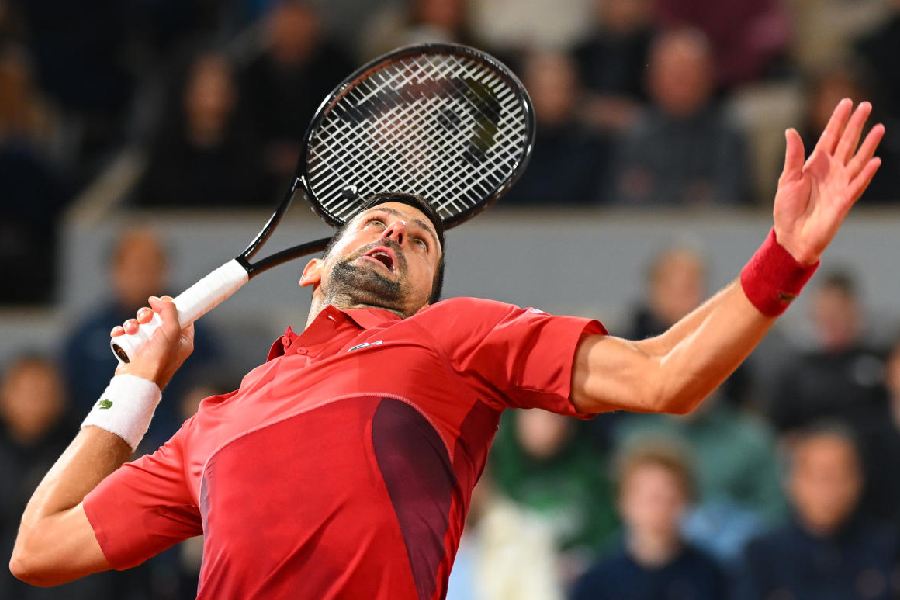Iga Swiatek provided a simple explanation for why she requested that the French Open not put her on the schedule during one of its night sessions, which often turn into way-past-midnight sessions.
“I just like,” the world No.1 player explained, “to sleep normally.”
Catching the right amount of z’s is no easy task in grand slam tennis these days, for the athletes or those watching them compete.
Current players, ex-players and the folks who run the sport tend to agree that it’s hardly ideal to carry on into the wee hours of the morning, something that keeps happening repeatedly.
The latest example is defending champion Novak Djokovic’s five-set victory at Roland Garros against Lorenzo Musetti, a contest that began after 10:30 pm on Saturday and didn’t wrap up until after 3 am on Sunday.
Not great for the players. Or the fans on hand or trying to follow along from afar. Or the stadium workers. Or the on-court officials. The biggest problem? No one can get on the same page when it comes to finding a fix.
“It’s a complicated thing,” US Open champion Coco Gauff said on Sunday.
“But I definitely think for the health and safety of the players, it would be in the sport’s best interest to try to avoid those matches finishing — or starting — after a certain time. Obviously, you can’t control when they finish.”
There are those who argue there should be curfews in place everywhere, the way Wimbledon halts action at 11 pm — and others who think that’s not practical for TV purposes or for players who would rather just finish what they started.
There are those who propose beginning day sessions before 11 am or noon in the main stadiums — and others who believe players would rather not be out there in the morning, a time when few sports take place, while spectators and those putting on the events might object, too.
There are those who suggest men should play best-of-three-set matches instead of best-of-five and others who maintain the longer format creates additional drama and is essential to the allure of major tournaments.
Then again, as Swiatek noted: “I don’t know if the fans are watching these matches if they have to go to work the next day, or something, when the matches are finishing at 2 or 3 am.”
During the French Open, one of the hurdles has been the weather: Showers on five consecutive days created havoc with the schedule.
“There are lots of factors that weigh into this stuff. Solutions are difficult, because you have to put yourself in everyone’s seat,” said Jim Courier, who won two of his four major trophies at the French Open in the early 1990s. “So you pick your poison. There’s no good answers when it rains as much as it has.”
One of the reasons Djokovic versus Musetti got going so late in the evening was that it was preceded by another third-round match that was supposed to have been completed Friday but was suspended, so it was moved to Court Philippe Chatrier to take advantage of its retractable roof.
“Some things could have been handled a different way,” said Djokovic, 37, who is pursuing a record-extending 25th career grand slam singles title.
“There’s beauty, as well, I guess, (in) winning the match ... at 3:30 am. — if it’s the last one of the tournament. But it’s not. So I’m going to have to switch (on) all of my young genes and try to recover as quick as possible.”










